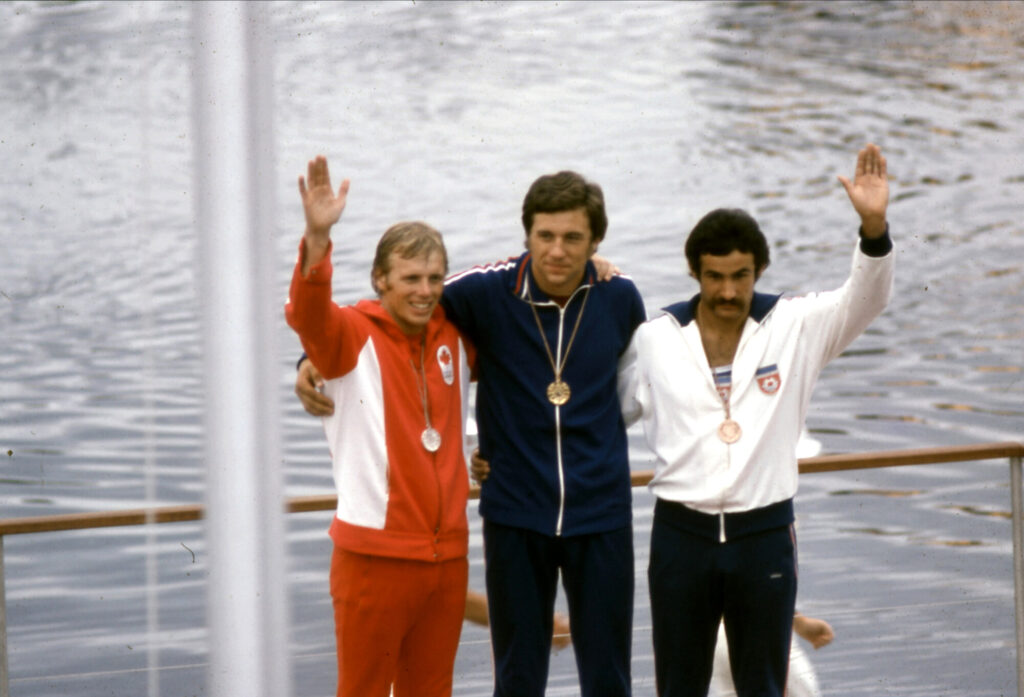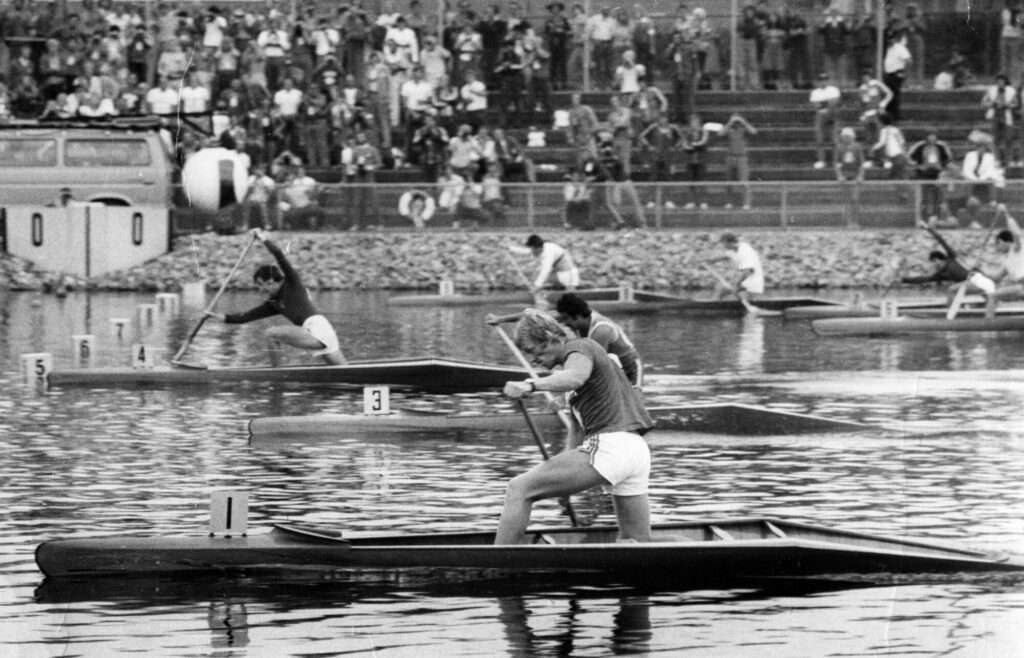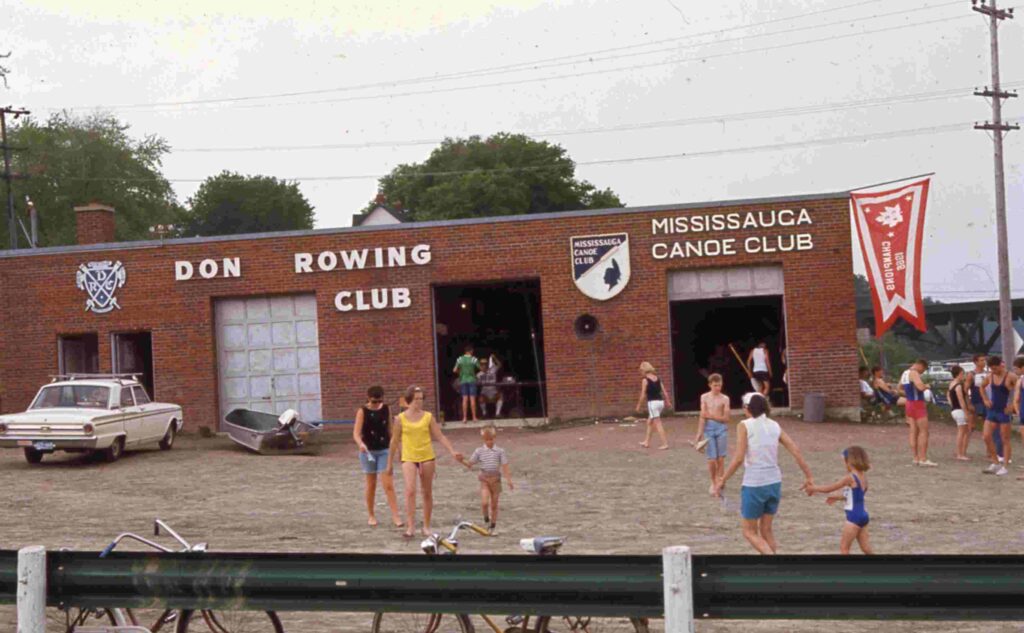Canoes and kayaks are quintessentially Canadian. Indigenous by design, these two watercraft were how people traversed Canada’s myriad lakes and rivers for thousands of years, trading and travelling across kilometres.
Today, the image of a canoe on still water in the morning mist is a familiar Canadian image, as is the blood-pumping thrill of a kayak negotiating white water rapids.
Yet, despite the place canoes and kayaks hold in the Canadian imagination, in the 1960s and 1970s, we weren’t considered a canoe or kayak nation in the world of international sport.
Not until Mississauga’s John Wood came along.
It’s 1976, and Canada is hosting its first Olympic games in Montreal.
Canadian athletes are under pressure to perform before the hometown crowd and win significantly more medals than the five Team Canada won at the 1972 Munich games.
Wood had been in Munich – Montreal was his third Olympic games – and he was hungry for a medal.
Fiercely competitive, Wood was a common sight on the Credit River. He paddled up to 60 kilometres a day, gliding across the water, supported and encouraged by his coach and Port Credit Secondary School teacher, Mac Hickox.
That’s where he was in the days leading up to his big race in the 500-metre canoe singles. After enjoying the opening ceremonies with the rest of Team Canada, Wood and Hickox found the party atmosphere of the Athletes’ Village to be too distracting, so Wood came home, finding focus on his familiar river.
It worked because John Wood made history on July 30, 1976.

Olympic silver medalist John Wood, left, stands on the Olympic podium with gold medalist Aleksandr Rogov of Russia and bronze medalist Matija Ljubek of Yugoslavia at the 1976 Olympic Games in Montreal, breaking Canada’s quarter-century medal drought in canoe. (Photo courtesy Mississauga’s Legend’s Row)
Since its debut at the 1936 Olympics, Europeans dominated canoeing, particularly athletes from Eastern Bloc countries. This was at the height of the Olympics’ doping era, and Canadian athletes felt at a disadvantage.
However, Hickox and Wood felt confident as the paddler readied himself at the starting line.
With fluid motions, Wood dug his paddle into the St. Lawrence River, leaning into each stroke, keeping pace with Aleksandr Rogov of the Soviet Union. The pair crossed the line in a photo finish, with Rogov claiming gold by 34/100th of a second.
Wood won silver – Canada’s first medal at the Montreal games.
It also ended Canada’s 24-year medal drought in canoeing.

John Wood competing at the 1976 Montreal Olympic Games. (Photo courtesy of Mississauga Legend’s Row)
Since its debut at the 1936 Olympics, Europeans dominated canoeing, particularly athletes from Eastern Bloc countries. This was at the height of the Olympics’ doping era, and Canadian athletes felt at a disadvantage.
However, Hickox and Wood felt confident as the paddler readied himself at the starting line.
With fluid motions, Wood dug his paddle into the St. Lawrence River, leaning into each stroke, keeping pace with Aleksandr Rogov of the Soviet Union. The pair crossed the line in a photo finish, with Rogov claiming gold by 34/100th of a second.
Wood won silver – Canada’s first medal at the Montreal games.
It also ended Canada’s 24-year medal drought in canoeing.
Standing on the podium, Wood’s medal ricocheted through the North American canoeing world like a silver bullet – evidence to other athletes that the European dominance could be broken.
“It was a breakthrough moment,” Hickox told the Mississauga News on the 50th anniversary of Wood’s silver medal.
“It taught the athlete in canoe and kayak in North America that it was possible to win an Olympic medal.”
Wood’s performance in Montreal also earned him another title for the history books; he was the first resident of the City of Mississauga, created in 1974, to win an Olympic medal.
He wasn’t the last member of the Mississauga Canoe Club to stand atop the canoeing and kayaking world in international competition.

‘Don’ and ‘Missy’ in 1967. The two paddling clubs originally shared space on the shore of the Credit River in Port Credit in a building constructed by the Credit Valley Lions Club. (Photo courtesy of the Museums of Mississauga)
The Mississauga Canoe Club, nicknamed Missy, was founded by Bert Oldershaw in 1958 and is one of the most successful flatwater paddle clubs in Canadian history.
While Bert never won an Olympic medal, he remains the only Canadian paddler to reach three successive Olympic finals, in 1948, 1952 and 1956.
His sons, Dean, Reed and Scott, all completed for Canada, as did Scott’s son, Mark Oldershaw, who won bronze at the 2012 Summer Games in London.
They weren’t the only Missy paddlers to reach international heights.
Marjorie Homer-Dixon was one of the first Missy paddlers to make the national team, competing in the 1968 and 1972 Olympic games.
For the 1976 Montreal games, Missy qualified six paddlers – John Wood, Gregg Smith and Jeremy Abbott in canoe, the Oldershaw brothers Dean and Reed in kayak and Team Canada head coach Mac Hickox – the most of any Canadian canoe clubs up to that point.
At the turn of this century, the Buday family – father Tamas Sr. and brothers Tamas Jr. and Attila – made their mark on the world’s stage from their home base in Port Credit.
Tamas Sr. helped expand Missy’s reach and work with elite athletes. Originally from Hungary, Tamas Sr. won bronze at the Montreal games and 13 world championship medals between 1973 and 1983 before emigrating to Canada, where he quickly established himself as a coach.
He joined Team Canada as a coach in 1987 and coached Olympic squads from 1988 through to 2012, which included coaching sons Tamas Jr. and Attila, who competed for Canada at the 1996, 2000 and 2004 Olympic games.
This past summer, the Mississauga Canoe Club proudly cheered on Katie Vincent as she made Canadian Olympic history, becoming the first Canadian woman to win gold in the 200-metre canoe sprint at the Paris Olympics.
Today, the Mississauga Canoe Club supports athletes of every skill level and continues to compete at the highest level from its berth on the eastern shore of the Credit River.
You can hear more stories about the people and events that helped shape Mississauga via our podcast, We Built This City: Tales of Mississauga, available on your favourite podcast platform or from our website.
